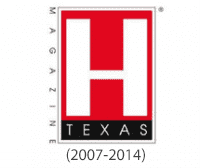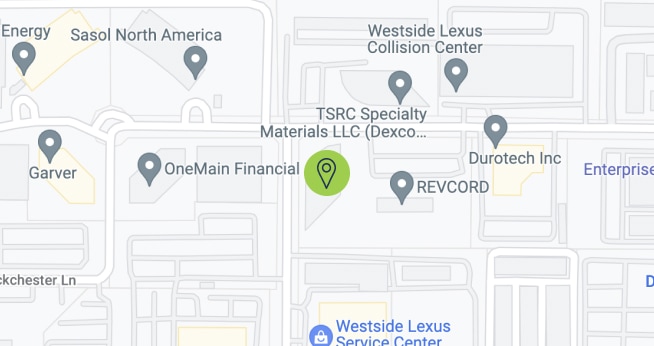Studies suggest that the majority of truck accidents are caused by a small percentage of commercial vehicle drivers.
High-risk drivers are those who have a propensity to:
- Act aggressively while operating the truck
- Are impatient or impulsive
- Be easily distracted or lack focus
The truck driver lost control and caused an accident. What can I do?
Abuse of Alcohol and Controlled Substances: Alcohol and drugs impair your ability to drive. It is even more pronounced when driving a big-rig 18-wheeler truck.
Even after a few drinks, drivers can cause accidents with their inability to respond to difficult driving situations or emergencies. Add to this the fact that a big rig is much more difficult to control in the first place and the results can be serious.
Truck drivers who have had more than 4 drinks or are high on drugs can cause accidents because they are unable to control their truck and stop safely. A driver in this condition can easily rear-end another truck or car and cause serious injury.
Because concentration is impacted by alcohol or drugs, commercial truck drivers can cause accidents by making unsafe lane changes, following too closely, or even hitting pedestrians at truck stops at night when it’s dark.
They may also misjudge their speed, take a corner too fast and drift into oncoming traffic causing head-on collisions with other drivers.
For many reasons, it is a bad idea to drink or take drugs and then drive your big rig.
Poor Maintenance and Inspection Practices: Even though semis are subject to rigorous inspection and maintenance regulations, truck accidents still occur because 18-wheelers are not properly inspected or maintained.
Truck accident studies by the FMCSA have shown that up to one-third of the tractor-trailers involved in accidents had out-of-service violations, which means the trucks should not have been on the road just prior to the accident.
Some examples of these violations which cause accidents include:
- Brake system problems such as inoperative or defective brakes, out-of-adjustment clamp or roto-type brakes, brake hose or tubing damage
- Tires with tread depth less than 2/32 of an inch or with tread or sidewall separation
- Steering column with loose bolts or positioning parts, steering wheel not properly secured
- Suspension with cracked, broken, loose, or missing bolts, spring hangers, and other positioning parts
 Texting and Distracted Driving: Just car drivers and truckers can be distracted while they drive semis on highways. It is arguably a bigger problem with 18-wheelers because companies require them to stay in contact with dispatchers in their operations department.
Texting and Distracted Driving: Just car drivers and truckers can be distracted while they drive semis on highways. It is arguably a bigger problem with 18-wheelers because companies require them to stay in contact with dispatchers in their operations department.
Studies have found that being involved in a truck crash or near-crash, increases 23 times for bus and truck drivers who text while driving.
Texting while driving is banned in 39 states, and in October 2010 the FMCSA introduced a regulation that bans texting while driving for all drivers of commercial motor vehicles which includes semis, tractor-trailers, and 18-wheelers.
Other activities found to distract truck drivers and increase the risk of a truck wreck are:
- Dialing a cell phone while driving the truck
- Using a calculator in their lap while rolling down the highway in trucks
- Looking at a map on a phone or with a paper map in the truck
- Making notes on a pad or notebook
- Difficult tasks like cleaning side truck mirrors
How Do You Prove Fault In a Truck Accident Investigation in Houston?
In any truck or 18-wheeler accident, a proper investigation is critical to determine responsibility. Insurance companies investigate immediately after a truck accident. Our lawyers have extensive experience handling truck accident cases of all types. We can help you investigate to get the truck accident settlement you deserve.
To determine the cause of a truck accident we investigate safety inspection reports, security of the load, maintenance logs, GPS logs, and state and federal certifications to determine what responsibility the truck driver holds.
We also examine skid marks, gather witness testimony, and examine driving conditions and other critical accident scene evidence.
Sometimes, individuals other than the driver can be held liable for an accident if they are guilty of negligent entrustment.
The trucking companies have their team of professionals — you need yours!
Truck Accident Frequently Asked Questions
The moments after a truck accident can be confusing. Victims typically are left with severe injuries. They may have many questions about how the crash happened and who was to blame for it, and they may have no idea about what to do next. Here, we address those issues and many other frequently asked questions about trucking accidents.
To discuss the specific facts of your own case, contact the Houston truck accident lawyers at Fleming Law today. We have decades of experience in investigating tractor-trailer crashes in the Houston area and pursuing just compensation for victims and their families. We can provide a timely and free consultation.
- How are 18-wheeler truck accident cases different from car wrecks?
- Why do accidents involving trucks happen?
- Who are potential truck collision defendants?
- How do you prove the trucking company is liable?
- How can violations of trucking safety regulations help my case?
- What if I am partly at fault for a truck accident?
- How much is my truck collision case worth?
- Who can bring a wrongful death case in Houston against a trucker?
How are 18-wheeler Truck Accident Cases Different from Car Wrecks?
Due to the size and weight of tractor-trailers, accidents involving these rigs tend to result in more serious injuries than crashes that involve only standard-size passenger cars. Unfortunately, the occupants in the other vehicles are the ones who typically suffer the worst injuries. In fact, on average, around 80 percent of the fatalities in large truck crashes in the U.S. are people in other vehicles, Federal Motor Carrier Safety Administration (FMCSA) statistics show.
Additionally, in most car accidents, only one person is at fault. After a crash with an 18-wheeler, many parties could be liable. Truck accidents also may involve violations of state and federal regulations that govern the trucking industry. If you were in a trucking accident, it will be important to work with a lawyer who understands those regulations and the many other unique aspects of these cases.
Why Do Accidents Involving Trucks Happen in Houston?
Truck accidents happen for many different reasons. Some of the most common causes of these crashes are:
- Distracted driving – A tractor-trailer is a complex vehicle. Drivers need to focus on the truck’s controls and pay attention to the road. Unfortunately, many do not. They may text or talk on phones while driving or engage in other distractions.
- Fatigued driving – Truckers can be on the road for many hours at a time. Some drivers fail to properly log their hours and violate the FMCSA’s hours-of-service regulations which are supposed to limit their driving hours and prevent drowsy driving crashes.
- Impaired driving – Truckers that use alcohol or drugs while on the road – even certain types of prescription drugs – can lack the motor skills and judgment that it takes to safely operate a big rig. Texas, like many other states, sets a 0.04 blood alcohol concentration (BAC) limit for commercial motor vehicle drivers.
- Inexperience – Some trucking companies hire drivers who lack proper training and experience, or they fail to adequately supervise and monitor their driving.
- Poor truck maintenance – Truckers and trucking companies must regularly conduct pre-and post-trip inspections of their vehicles and make any necessary repairs. A poorly maintained truck can be a hazard on the road.
At Fleming Law, we take immediate steps to investigate truck accidents so as to preserve, gather and analyze important evidence. We also consult with experts in trucking safety and accident reconstruction. We know how to determine the causes of trucking accidents.
What Are the Most Common Types of Truck Accidents in Texas?
Some of the most common collisions involving large commercial vehicles in Texas include:
- 18-wheeler accidents – Commercial trucks, known as 18-wheelers, involve a tractor unit that hauls a trailer unit with a combined 18 wheels. They are commonly used for long-haul transportation of a wide range of products and materials. Their size makes them particularly dangerous in a collision.
- Trailer accidents – Commercial trucks often tow cargo with a detachable trailer. If the trailer is not adequately secured, it can become separated from the truck, with potentially dangerous results.
- Tanker truck accidents – Tanker trucks transport liquids and gasses, such as fuel, chemicals, and other hazardous materials. Accidents involving tanker trucks can be particularly devastating due to the potential for spills, leaks, or explosions.
- Jackknife accidents– A jackknife accident occurs when a truck’s trailer swings out to the side, forming an angle with the cab. This often happens when the truck’s wheels lose traction. Jackknife accidents often spread destruction across multiple lanes, putting occupants of nearby vehicles in danger.
- Rollover accidents – A rollover accident involves a truck tipping onto its side or rolling over completely. These wrecks can occur due to factors like speeding, taking turns too fast, shifting cargo, or uneven weight distribution. Rollover accidents are highly destructive and can affect multiple lanes of traffic.
What Are the Most Common Injuries from a Truck Accident?
Truck accidents often result in injuries, but their severity and type vary depending on factors such as the speed of the vehicles, the angle of impact, and the number of vehicles involved.
Some common injuries from truck accidents in Texas include:
- Whiplash – Whiplash is a soft tissue injury caused when the head suddenly jerks forward and backward, resulting in strain and sprain to the neck’s muscles, ligaments, and tendons. Symptoms may include neck pain, stiffness, headaches, and reduced range of motion.
- Fractures – The force of impact in a truck accident can break bones in the arms, legs, ribs, or pelvis. These injuries range from simple breaks to more severe compound fractures that may require surgery.
- Traumatic brain injuries (TBIs) – TBIs can occur when the head strikes an object or experiences a violent jolt. These injuries can range from concussions to more severe injuries like brain contusions, hemorrhages, or diffuse axonal injuries. TBIs can result in cognitive impairments, memory loss, difficulty concentrating, mood changes, and other neurological symptoms.
- Spinal cord injuries – The impact of a truck accident can cause damage to the spinal cord, the conduit of messages between the brain and the rest of the body. Damage to this conduit can lead to partial or complete loss of sensation and motor function.
- Back injuries – Truck accidents often cause back injuries, such as herniated discs, spinal fractures, and back strains. These injuries can result in limited mobility, tingling, numbness, and chronic pain.
- Internal injuries – The force of impact can damage organs such as the lungs, liver, spleen, or kidneys. Internal injuries can become life-threatening if not promptly diagnosed and treated.
In the aftermath of a truck accident, it’s essential to prioritize your health and well-being. If you or a loved one has suffered injuries in a truck accident in Texas, contact a dedicated Texas truck accident attorney at Fleming Law today. Our experienced legal team is here to help you navigate the legal process, seek the compensation you deserve, and ensure your rights are protected. Your path to recovery starts with the right support – reach out to us now for a consultation.
Who are Potential Houston Truck Collision Defendants?
Many parties can potentially be liable in a truck accident. Of course, the truck driver can be found liable if the driver acted negligently. A trucking company may also be liable based on its driver’s negligence or its own negligence. Other parties such as the company that loaded the truck or the shipping broker may be held responsible as well. If any part of the truck was defective, the manufacturer could be held accountable through a product liability claim.
How Do You Prove the Trucking Company Is Liable For the Accident?
A trucking company may be liable due to its own negligence. For instance, the company may have hired a driver without conducting an adequate background check, failed to adequately train and supervise the driver, or neglected to inspect and maintain the vehicles in its fleet. To establish the company’s liability, your lawyer from Fleming Law, can review hiring records, logbooks, inspection and maintenance records, and other evidence.
What Damages Can Be Recovered in a Texas Truck Accident Claim?
In Texas, truck accident victims may seek compensation in the form of damages for:
- Medical expenses
- Lost wages
- Loss of earning capacity
- Pain and suffering
- Mental anguish
- Loss of enjoyment of life
- Property damage
An experienced Texas truck accident attorney can help calculate your expenses so you can pursue full compensation for your losses.
Are There Federal Regulations Truck Drivers Must Follow?
Interstate truck drivers must follow regulations established by the Federal Motor Carrier Safety Administration (FMCSA), an agency within the U.S. Department of Transportation.
Here are some key federal regulations that truck drivers and their employers must follow:
- Licensure regulations – Commercial truck drivers must obtain a commercial driver’s license (CDL) from the Texas Department of Transportation. Depending on which type of CDL a driver is applying for, they may need to complete entry-level driver training, knowledge and driving tests, and medical certification.
- Drug and alcohol regulations – Under federal regulation, truck drivers cannot consume or be under the influence of any amount of alcohol within four hours of driving a commercial truck or going on duty. Federal regulations also forbid drivers from being under the influence of drugs or impairing substances that would prevent them from safely operating a motor vehicle. Trucking companies must implement alcohol and drug testing following the FMCSA requirements.
- Hours of service regulations – Truck drivers must comply with hours of service (HOS) regulations, which limit the number of hours they may drive or remain on duty.
- Inspection and maintenance regulations – Trucking companies and drivers must comply with systemic inspection, repair, and maintenance regulations. Drivers must complete a daily inspection report, which the company or its agent must keep for at least three months.
How Can Violations of Trucking Safety Regulations Help My Case?
When trucking companies and truck drivers violate state and federal safety regulations, it can establish negligence as a matter of law, or negligence per se. Some of the most common violations involve texting while driving, exceeding hours-of-service restrictions, and failing to conduct routine truck inspections.
What if I am Partially at Fault for the Truck Accident?
Texas follows a rule called modified comparative negligence. When multiple parties are at fault, each one is assigned a percentage of fault. As long as you are 50 percent or less to blame, you can still receive compensation. However, your total award will be reduced by your portion of the fault.
Example: Let’s say you were 20 percent responsible for the truck accident that injured you, and your total damages were $100,0000. The most you would be able to collect is $80,000 (the total award minus your portion of the fault).
It’s important to know that your entire claim hinges on remaining below the 50 percent mark. If you are found even one percentage point more to blame for the crash, you will receive no money at all. This is one of the main reasons to work with an experienced truck accident attorney. With so much on the line, it’s guaranteed that the insurance company will try to shift the blame onto you.
How Much Is My Houston Truck Collision Case Worth?
A lawyer cannot determine how much your claim is worth in a trucking accident lawsuit without first reviewing the specific facts of your case. However, a few common types of damages that accident victims can pursue include past and future medical expenses, lost income, loss of earning wages, property damages, loss of consortium, loss of enjoyment of life, pain, and suffering, and emotional distress.
Who Can Bring a Wrongful Death Case in Houston Against a Trucker?
The surviving spouse, children, or parents of one who dies in a tractor-trailer crash may be eligible to file a wrongful death claim. If none of them files a claim within three months of the death, the executor of the estate may file a wrongful death claim. A wrongful death claim can seek damages that are different from a personal injury claim, including compensation for the loss of a loved one’s services and financial support.
What Should I Do Immediately After a Truck Accident?
First and foremost, do not leave the scene. Doing so could result in legal penalties or fines. While you shouldn’t leave the scene, you should try to move your vehicle out of the way of other traffic if it is safe to do so.
Make sure any passengers are safe, and if possible, keep them in your vehicle and belted in. You’ll also want to see if you, your passengers, and anyone in the truck has been injured. If someone has been injured, dial 911 immediately to call for emergency medical attention. You’ll also want to alert the local police so they can come to the scene and make a report.
Next, you’ll want to collect as much information about the other driver and their vehicle as you can. Ideally, you’ll want to get the driver’s full name, phone number, physical address, and email address; the name of the company they work for and the company’s contact information; the driver’s license number for their truck; and the contact information for the driver’s insurance company. It is also crucial to get insurance information.
After getting the information on the driver and their truck, you’ll want to take as many pictures as you can of the crash scene. Take pictures of your vehicle, the truck, the surrounding area, any obstacles that might have caused the crash, and so on. You’ll also want to take note of the precise location where the crash occurred. If there are any witnesses to the accident, you should try to get their contact information as well.
Avoid making any statements yourself. Be truthful when talking to the police, but be careful not to apologize, or admit any fault in relation to the accident. Answer only what you’re asked and don’t speculate about things you don’t know. The truck driver’s insurance carrier may try to use your own words against you, so do not speak to them until you’ve had a chance to consult with a truck accident attorney. You’ll also want to avoid making any posts on social media about the crash.
Contact an experienced truck accident lawyer as soon as possible. Your attorney can handle the legal matters while you focus on recovering.
Should I Talk to the Trucking Company’s Insurance Provider?
You should not speak to the trucking company’s insurance provider until you’ve spoken to an attorney. Making a statement before the full facts of the case have been gathered could put any future claim against the trucking company in jeopardy, as they can use your own statement against you to rebut your claim. You should only speak to the trucking company’s insurer through your attorney, once you’ve hired one.
What Evidence Needs to be Gathered After a Trucking Accident?
The injuries from truck accidents can be catastrophic. If you’re seriously injured, seek medical attention immediately. But if you’re able, it’s smart to collect as much evidence from the accident scene as you can. This information will be vital if you need to file an injury claim later.
Examples of relevant evidence include:
- Photos: Take pictures of the crash site. Get shots of the vehicles from multiple angles. Look for environmental evidence that can tell the story of the crash, such as skid marks, broken guardrails, shattered glass, and road debris. Always photograph your injuries.
- Insurance information: Truck accident claims will go through the truck company’s insurance carrier(s). Make sure to get the insurance policy information from the truck driver and any others involved in the wreck.
- Witness statements: Eyewitness testimony is incredibly valuable. Get the names and contact information of anyone who saw the crash. Statements from passengers are good, but testimony from outside parties will carry more weight because they won’t have an interest in your legal case.
- Police report: Get a copy of the accident report from the officer who responded to the scene.
- Truck inspection reports: After a truck accident, a truck inspector may come to the scene to examine the vehicle and write a separate report. Ask for this report as well, as it will contain evidence about the condition of the truck and the trailer after the crash.
A truck accident lawyer can assist with collecting other evidence that may not be readily available to you, such as black box data, GPS and onboard computer data, driver records, personnel files, logbooks, and the phone records of the truck driver.
Who Can Be Held Liable in a Trucking Accident?
Truck accidents differ from the average car accident in several ways. One of the most significant differences is that there are potentially more defendants in a truck accident case. These include:
- Truck driver: Truckers may be held liable for any negligent behavior on their part. They are subject to strict federal regulations governing their actions before, during, and after trips. For example, they may violate the hours-of-service rules that require mandatory rest periods to prevent drowsy driving accidents. Driving under the influence, distracted driving, speeding, and aggressive driving are other examples of negligence.
- Trucking company: Commercial motor vehicle carriers are required to hire qualified truck drivers with clean driving records. When they fail to do proper background checks, they can be held liable for negligent hiring practices. Truck companies are also required to perform regular inspections and maintenance on their fleets. If a breakdown causes a semi-truck accident, the company may be at fault.
- Cargo or loading companies: Cargo can shift during transport if it is improperly loaded. This can throw the entire truck off balance and cause a crash. Companies that do not ensure that cargo is loaded safely can be held liable for their actions.
- Vehicle and parts manufacturers: Manufacturers are responsible for ensuring that trucks and their equipment are free from defects. When a faulty part or poorly designed vehicle causes a crash, the automaker or parts manufacturer can be held accountable through a truck accident claim.
- Other drivers: Motorists who behave negligently behind the wheel may also be responsible for causing a truck wreck. In those cases, you could file a claim against that person’s auto insurance company.
- You: Even if you share some portion of the fault in your truck accident case, Texas law will still allow you to collect compensation. An attorney can help make sure that you are not unfairly blamed when a fault is divided between all negligent parties. (See below for more information on partial fault).
The tricky part of dealing with multiple defendants is that you will also have to deal with multiple insurance companies. Going up against high-powered corporate lawyers isn’t something you should handle on your own. A knowledgeable truck accident attorney can handle all settlement negotiations so that you aren’t tricked into saying something that jeopardizes your case.
What Is the Texas Statute of Limitations for a Truck Accident Lawsuit?
Under Texas’s statute of limitations, truck accident victims have two years to file a personal injury lawsuit against any at-fault parties. Filing after the deadline can result in the case being dismissed from court. Waiting too long can also jeopardize access to critical evidence and lessen negotiating power with insurance companies. You should consult a truck accident lawyer as soon as possible to explore your legal options for pursuing compensation.
How Long Does It Take to Settle a Truck Accident Case?
Truck accident cases can take quite a while to resolve. It takes time to gather the facts, research the applicable laws and regulations, file the paperwork, and negotiate with the liable parties and their insurance carriers. In the event a case goes to trial, the process may take even longer.
More important than the time it takes to win a case like this, however, is the deadline to file a claim. In Texas, you have two years from the date of the accident to file a personal injury claim, otherwise, the statute of limitations kicks in, and you lose the right to file a claim.
The insurance company and trucking company will have lawyers on their side. You need an 18-wheeler wreck attorney prepared to prove fault. Insurance companies take our law firm seriously knowing we will take personal injury cases to trial.
If you are ready to take the first step toward recovery, so is Fleming Law. We’ve been handling truck accident claims in Texas for over 30 years and are ready to put this experience at your disposal. Contact Fleming Law today for a free consultation with an experienced Texas truck accident lawyer, and find out what we can do for you.
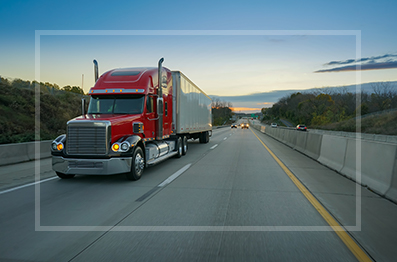
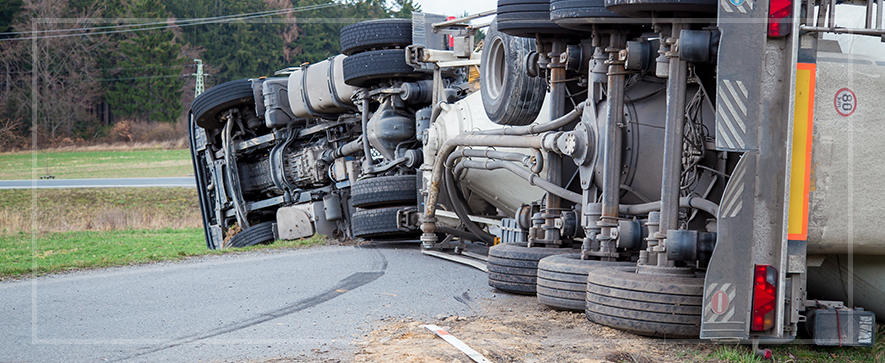

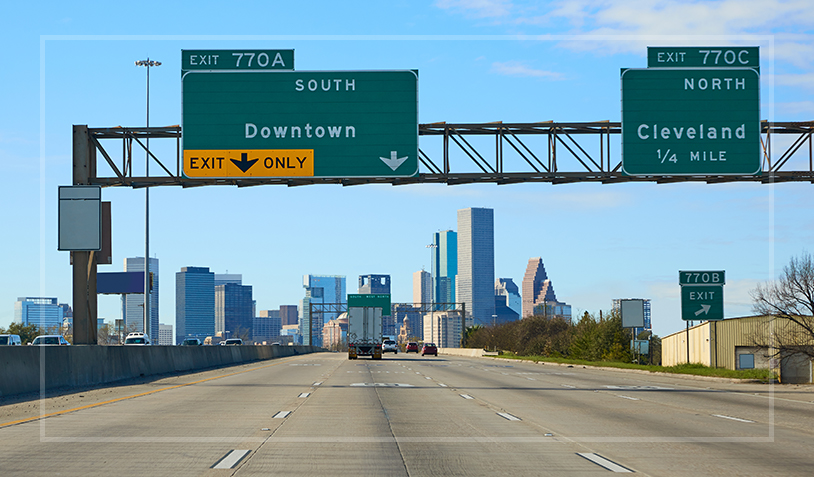
 Commercial drivers convicted of violating traffic laws in a state other than the one that issued their license are required to report the violation.
Commercial drivers convicted of violating traffic laws in a state other than the one that issued their license are required to report the violation.




